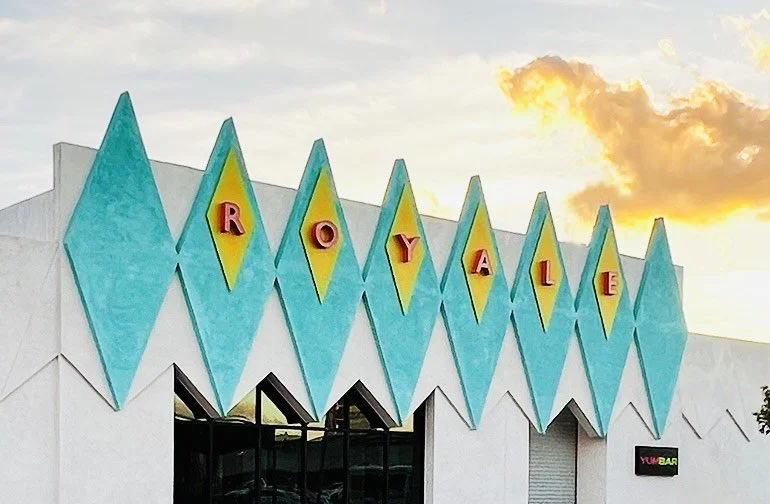Reverse lane reactions: New study should reflect the real economic and social hardships
The Urban Phoenix Project reached out to a number of community members along 7th Ave and 7th Street in central Phoenix, to get their reaction on the City Council’s recent decision to request a new study of the reverse lanes, rather than listen to their constituents calling for the lanes’ removal. Read more about the decision here.
This is the first post in a series of opinion pieces from residents and business owners affected by the reverse lanes.
Rocco Menaguale is the co-owner of The Royale and Royale Kitchen + Cocktails, as well as Rocco Designs and Rocco Menaguale Fine Art, all based in the Melrose District of Phoenix (Credit: The Royale)
I've had my office in Melrose for more than a decade and I also lived in Melrose for quite a few years. I currently own three businesses off 7th Ave. in Melrose, and I live just off 7th St. and Thomas. It's a very special place for us.
While I understand the Council wanting to conduct another study, there have already been several studies done over many years, both independently and by the City (including a more recent ASU study, which showed that the reverse lanes are not heavily used). I am concerned that the due date for the study, December of 2026, is too far out, and action is needed today. I am also concerned that the large public outcry, data shared, and valid points fell on deaf ears for a few key council members.
I want to be sure that any new study is not only transparent, fair, accurate, and independent (and, of course, addresses safety, pedestrian movement, and traffic flow) but also addresses the real economic and social hardship that the reverse lanes cause. We don't believe the new study should solely address traffic flow, as this is a multi-layered urban issue.
In the urban hubs of midtown and uptown Phoenix (the neighborhoods that bear most of the burden of the suicide lanes and experience none of the alleged positive impact from them) there is higher urban density than ever before (and continues to increase). Several historic neighborhoods are along the 7s, with more people wanting to walk and bike, and businesses trying to create urban economic and social hubs as seen in Melrose, Coronado, and 7th Street's "Restaurant Row" (all with the City's encouragement). The reverse lanes create the antithesis of contemporary and thoughtful urban development in these key economic areas in Phoenix. They create a negative City statement that prioritizes traffic flow for the few over the economic development and quality of life for the majority.
As an architect, I know that from an architectural and urban planning perspective, these roads, with their reverse lanes, create barriers and voids in the City. They are not only confusing and chaotic (all day) but are also allowed to become highways that fragment the City. At my businesses, we have been told by many Phoenix residents that they feel the 7s are too dangerous to walk near, walk across, turn into businesses from, and drive down. Not only twice a day but all day long and all year long. We know that the neighborhoods off of the 7s experience increased traffic due to people cutting through the neighborhoods, because of the turning restrictions and other maneuvering caused by avoiding the suicide lanes.
If these lanes were appropriate and safe, we'd see them all over town and see other cities keeping them, but we of course do not... We know that the suicide lanes turn our neighborhoods into dangerous, fragmented through-spaces rather than cohesive, thriving points of city pride.
Join the Movement
Momentum is building. More than 5,000 residents—from lifelong neighborhood advocates to new transplants who want better connectivity and safer street design—have signed the petition to end the reverse lanes. That’s 5,000 people standing up for safer streets, stronger small businesses, and a smarter vision for Phoenix. Every signature sends a clear message: this is not a fringe issue—it's a citywide priority.
Add your voice and join the growing coalition calling for change at EndReverseLanes.com.
Take Action:
Email your council member: Find your Phoenix council district and contact info here
Attend any upcoming meetings (sign up for UPP’s newsletter to stay up to date on public meetings regarding the reverse lanes)

